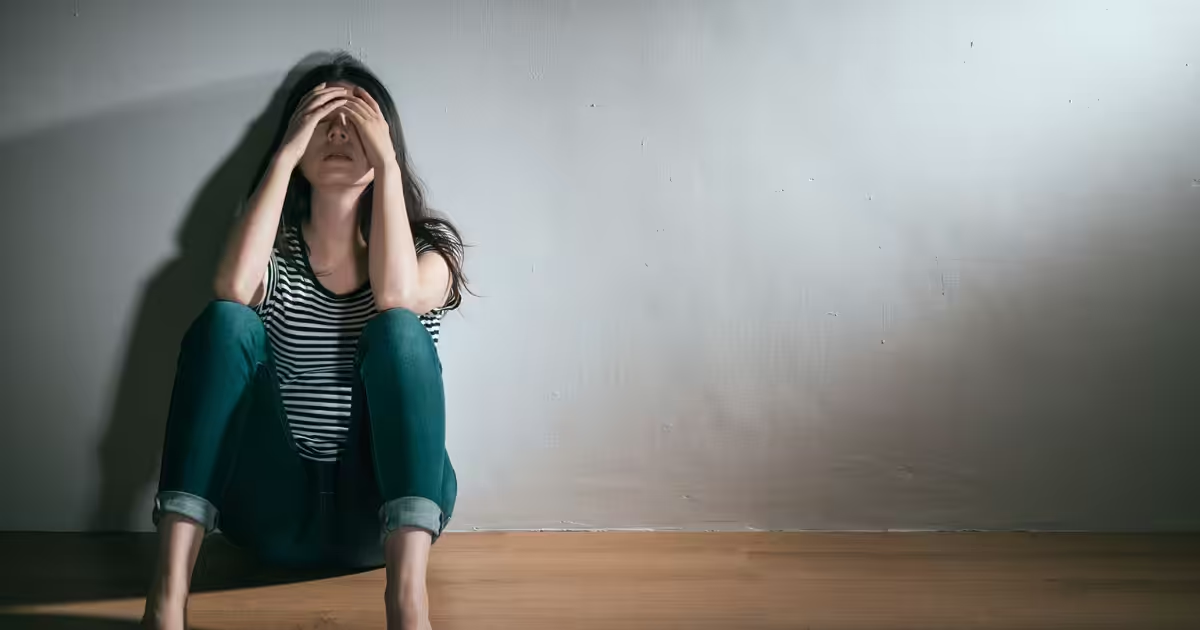About 2.8% of the U.S. population has been diagnosed with bipolar disorder, and most cases are severe. Bipolar disorder is not an uncommon condition, and it can be life-altering. Many people aren’t aware of the connections between bipolar and addiction. These conditions often occur together, and one can even trigger the other. Learn more about the links between bipolar disorder and addiction.
What Is Bipolar Disorder?
Bipolar disorder is a mental health condition that affects a person’s mood and energy levels. People with bipolar disorder experience extreme shifts in their emotions. They swing between two opposite states called manic and depressive episodes. People with bipolar disorder aren’t always experiencing episodes. They have many periods of neutrality, just like anyone else. However, when those episodes arise, they can be debilitating.
There are two types of bipolar disorder: Bipolar I and Bipolar II. While Bipolar I and Bipolar II involve mood swings between high and low episodes, the distinction lies in the severity of the manic episodes. In Bipolar I, individuals experience full-blown manic episodes, while in Bipolar II, they experience milder hypomanic episodes.
Symptoms of Bipolar Disorder
There are many different symptoms of bipolar disorder, but not everyone experiences every symptom. Learn about the different types of bipolar episodes and their associated symptoms.
Manic and Hypomanic Episodes
During manic episodes, individuals feel overly energetic and excited. They may have racing thoughts. They might engage in impulsive behaviors, talk rapidly, and have difficulty sleeping. People often have heightened self-confidence and take risks without considering the consequences.
Many people perceive mania as happiness, but this isn’t the case. People experiencing severe manic episodes often come off as erratic to onlookers. Other symptoms of manic episodes include hyper fixation on a specific goal, increased spending, and a short attention span.
Hypomanic episodes are similar. They tend to be short-lived and less disruptive than full manic episodes. Manic episodes can also trigger unsafe substance use because the person feels unstoppable; they may drink excessively or use recreational drugs.
Depressive Episodes
On the flip side of manic episodes are depressive episodes. Depressive episodes cause intense sadness, feelings of worthlessness, and a loss of interest in activities. Anyone who experiences depression can likely relate.
Individuals may have trouble concentrating, experience changes in appetite or sleep patterns, and lack energy. Suicidal thoughts may also occur during severe depressive episodes. People may also experience weight changes, sleep disturbances, and full-body fatigue. During depressive episodes, people may turn to substance use to dull their negative feelings, making them more susceptible to addiction.
Mixed Episodes
In a mixed episode, individuals experience symptoms of both mania (or hypomania) and depression simultaneously. They may feel high levels of energy, restlessness, and irritability, and they’ll also feel intense sadness, hopelessness, or a lack of interest in activities. These episodes are dangerous and frustrating. It’s like having the worst of both worlds. High energy and intense depression can lead to impulsive or reckless behaviors like substance abuse.
How Bipolar and Addiction Are Connected
People with bipolar disorder are more likely to develop substance use disorders. Dual diagnosis is common. Manic, depressive, and mixed episodes can all lead to unsafe substance use. When someone is not in a normal state of mind, they may start using substances to feel more comfortable, and they won’t be as aware of the risks. There are also many symptoms of bipolar disorder that have crossover with symptoms of drug addiction.
Someone with a severe depressive episode may display some of the same symptoms as someone struggling with alcoholism or opioid abuse. They may be sleepy, lose interest in their favorite activities, and withdraw from social groups. On the other hand, someone who is experiencing a manic episode may display similar symptoms as someone who has an addiction to stimulants. They’ll show erratic behavior, be impulsive, and lack sleep. When someone is using substances to self-medicate for bipolar disorder, the substances can exacerbate their condition.
Can Substance Use Cause Bipolar Disorder?
Currently, it is unclear if substance abuse can cause bipolar disorder. Drug use causes actual physical changes in the brain. Those changes may result in someone developing bipolar disorder without a genetic predisposition.
Bipolar and Addiction Treatment Options
When you want to treat concurrent mental health conditions, you must take them both at once. While everyone responds well to different methods, it’s helpful to combine medication management with therapy to confront the problem from multiple angles. Many people worry about using psychiatric medication while recovering from addiction, but this medication can level out the symptoms of bipolar disorder and make it more tolerable. After that, the patient can focus on their recovery from addiction.
When it comes to therapy, cognitive behavioral therapy (CBT) is the most common option. CBT is effective for both addiction and bipolar disorder, so it’s fantastic for treating them simultaneously. Every patient is different and will need different treatment styles. A mental health professional can create an ideal treatment plan for each individual patient.
Bipolar and Addiction: A Common Combination
Bipolar and addiction often go together. Regardless of which condition came first, both require specialized treatment for a full recovery. If you’re struggling with bipolar disorder and drug or alcohol addiction, it’s time to seek help.
At Comprehensive Wellness Centers, we take a holistic approach to mental health. We specialize in dual diagnosis and treating comorbid conditions. We offer therapy, medication management, and a variety of specialized programs and services to make reintegrating into “normal life” easier. Contact us to start your healing journey today.

